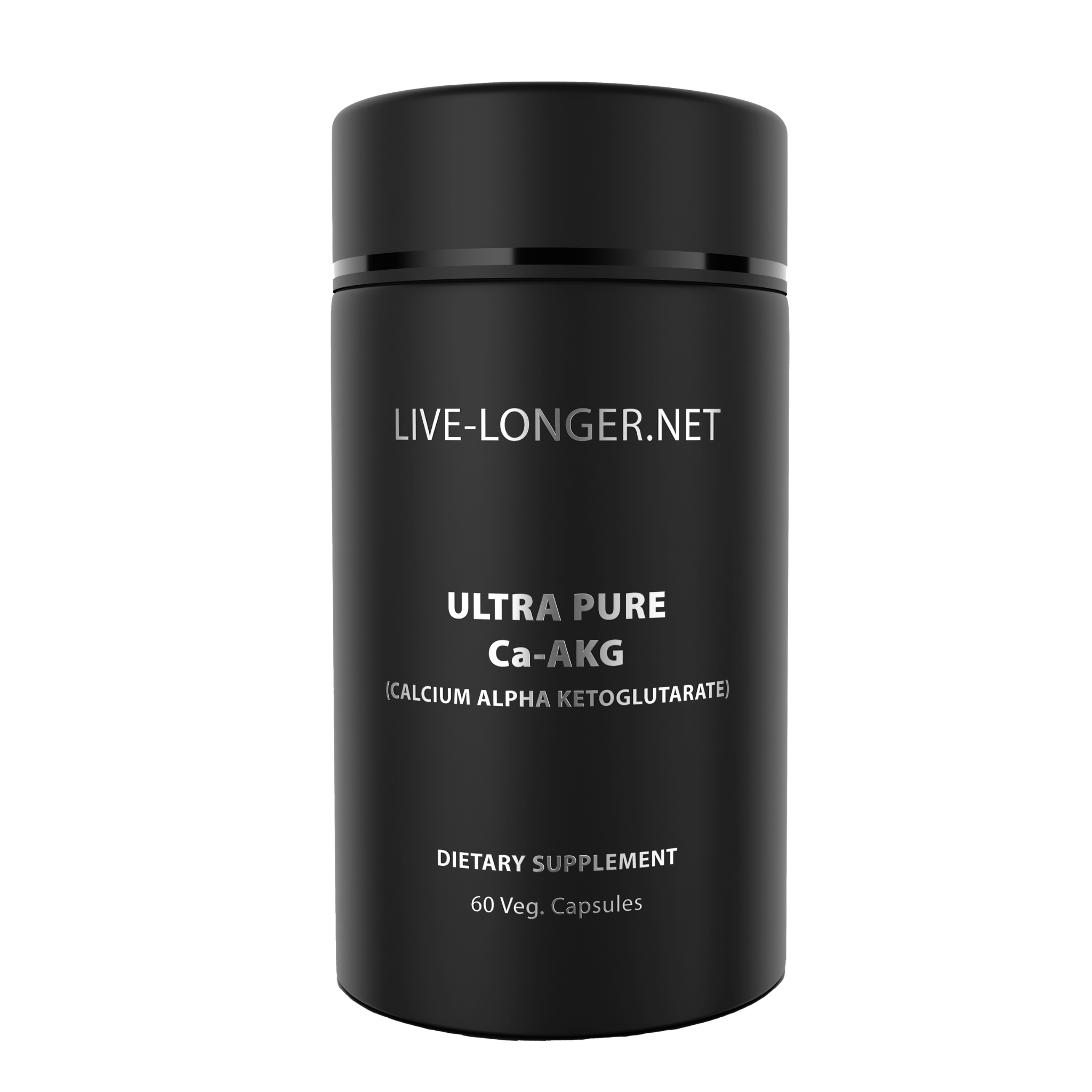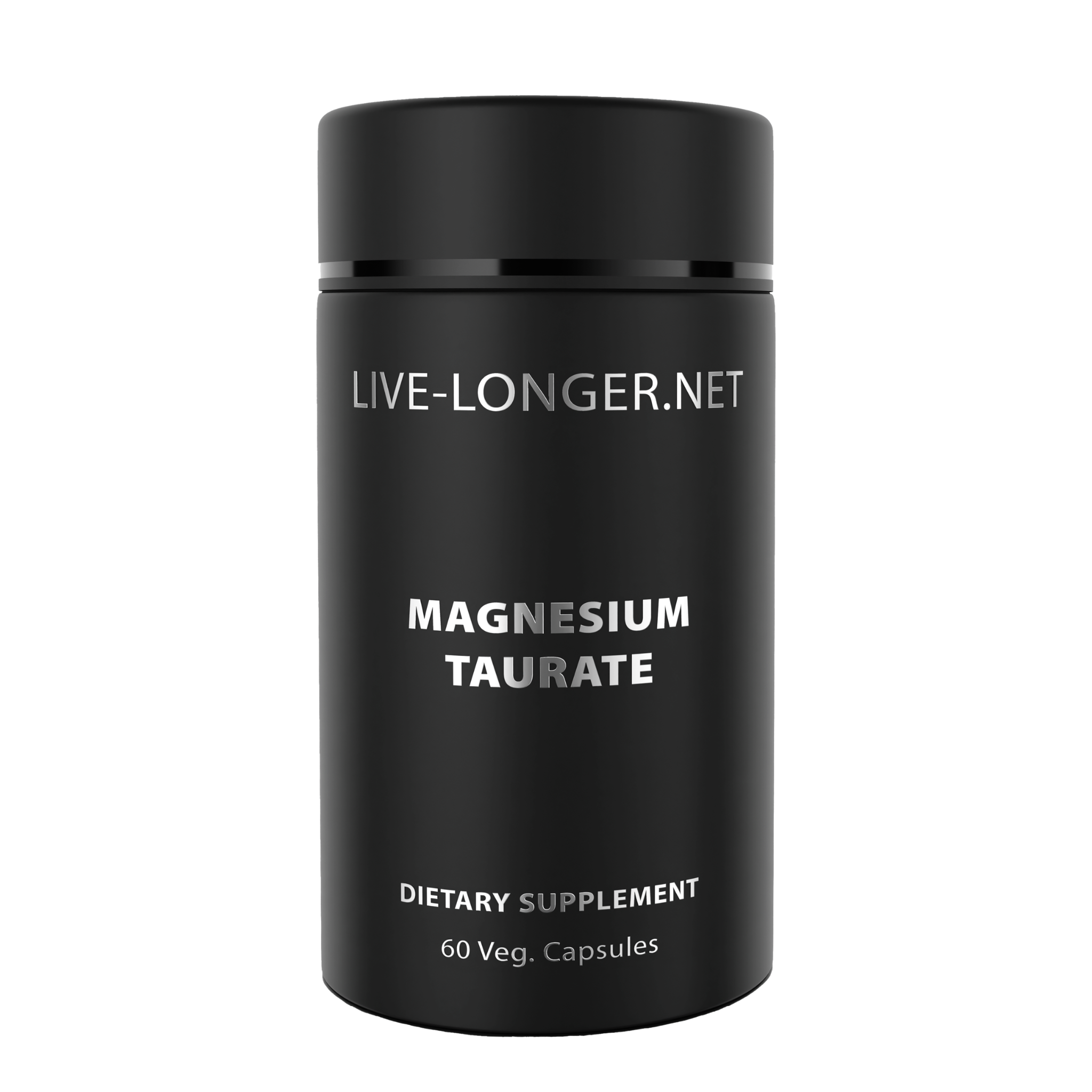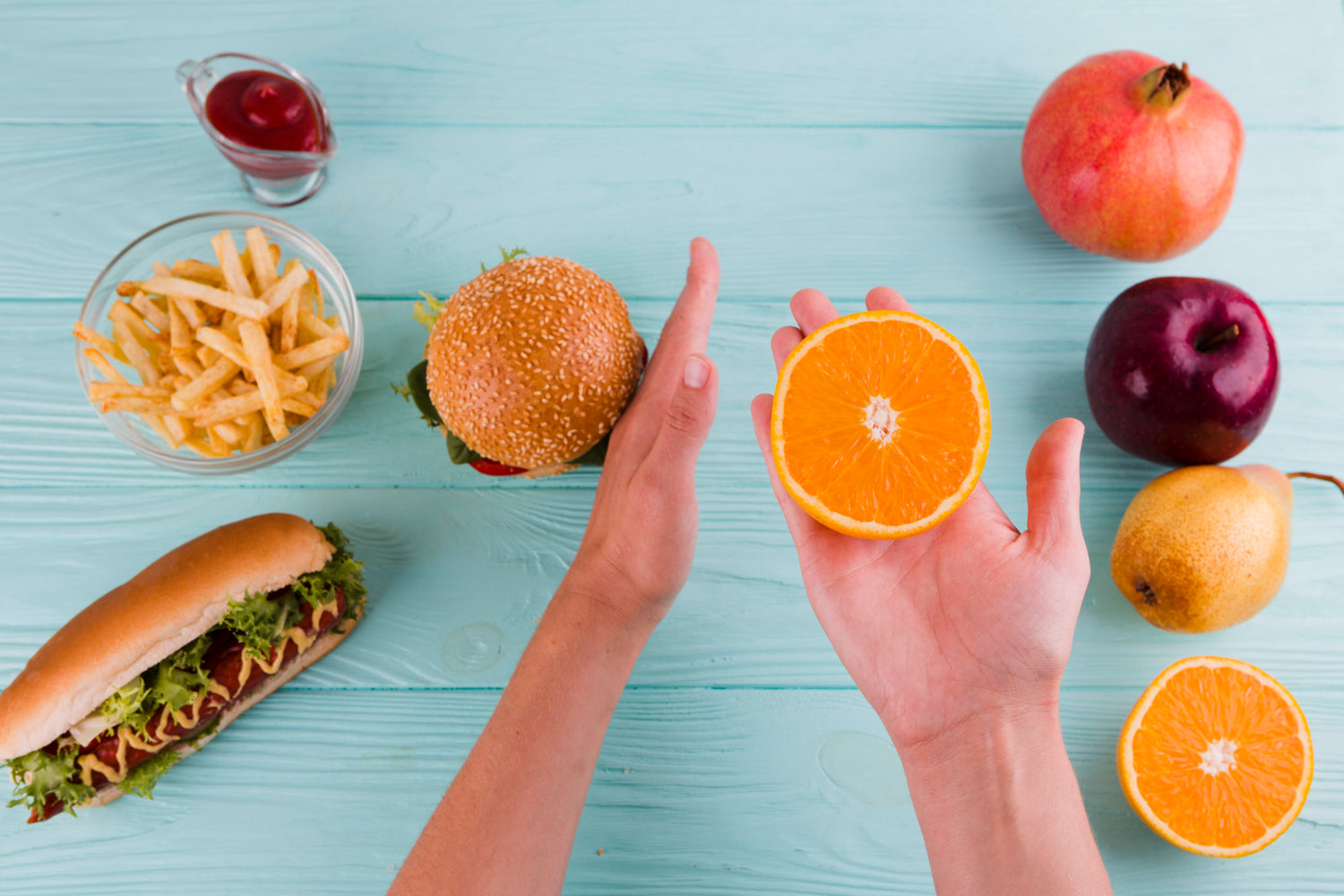Aging is an inevitable part of life, but the way we age is influenced by our choices—especially our diet. The foods we consume daily can either accelerate or slow down the aging process. Incorporating the right nutrients into our meals can improve skin elasticity, enhance brain health, and boost energy levels, helping us feel and look younger.
This is where anti-aging foods come into play. They are packed with antioxidants, vitamins, and essential compounds. These foods work wonders at a cellular level. They combat oxidative stress, reduce inflammation, and repair damage caused by environmental factors. By adding these nutrient-rich options to your diet, you can slow the effects of aging naturally.
In this article, we'll explore the science behind anti-aging foods, highlight the best options you should never miss, and provide practical ways to incorporate them into your daily routine. Small changes can make a big difference when it comes to aging gracefully.
The Science Behind Anti-Aging Foods
Anti-aging foods are not magic potions, but their impact on our bodies is nothing short of remarkable. These foods are rich in nutrients that slow aging by protecting cells from damage, promoting skin health, and supporting overall vitality.
One of the primary culprits of aging is oxidative stress, which occurs when free radicals—unstable molecules in the body—outnumber antioxidants. This imbalance leads to cellular damage, visible wrinkles, and even chronic diseases [1]. Anti-aging foods, rich in antioxidants like vitamin C, vitamin E, and polyphenols, help neutralize these free radicals [2].
Healthy fats, such as omega-3s found in salmon and walnuts, play a significant role in reducing inflammation, which contributes to aging-related issues like joint pain and cardiovascular diseases [3][4]. Vitamins and minerals like zinc, selenium, and beta-carotene also repair and regenerate skin cells, giving a youthful glow [5].
Additionally, anti-aging foods support the production of collagen, a protein crucial for skin elasticity. They also help maintain brain function, bone density, and overall energy levels. By understanding these benefits, we can make informed choices to include these powerhouse foods in our diets, ultimately enhancing our quality of life as we age.
Top 10 Anti-Aging Foods You Should Include in Your Diet
A balanced diet with nutrient-dense foods is one of the most effective ways to combat the signs of aging. Here are ten anti-aging foods you should never miss, along with their unique benefits:
1. Blueberries
Blueberries are often called nature's superfood, and for good reason. They are packed with antioxidants like anthocyanins, which fight free radicals that cause cell damage [6]. Rich in vitamin C, they also promote collagen production, keeping skin firm and youthful [7]. Studies have shown that regular consumption of blueberries can improve memory and slow age-related cognitive decline [8].
2. Avocados
Creamy and delicious, avocados are a powerhouse of healthy monounsaturated fats, which help maintain skin hydration and elasticity. They are also loaded with vitamin E, an antioxidant that reduces wrinkles and protects against sun damage [9]. Additionally, their high potassium content helps maintain proper hydration and reduce puffiness [10].
3. Salmon
Salmon is one of the best sources of omega-3 fatty acids, essential for reducing inflammation in the body. These fats help keep skin supple and moisturized while supporting brain health and cardiovascular function [11]. Salmon also contains astaxanthin, a potent antioxidant known for its anti-aging properties [12].
4. Spinach
This leafy green is a nutritional powerhouse, rich in vitamins A, C, E, and K [13]. Spinach also contains lutein and zeaxanthin, antioxidants that support eye health and prevent age-related vision problems [14]. Its high water content and fiber promote hydration and detoxification, contributing to glowing, healthy skin.
5. Walnuts
A handful of walnuts can go a long way in promoting healthy aging. They are an excellent source of omega-3 fatty acids and protein, both of which are essential for brain health and preventing cognitive decline [15]. Walnuts are also rich in polyphenols, compounds that protect the skin from UV damage and improve elasticity [16].
6. Dark Chocolate
Good news for chocolate lovers! Dark chocolate, especially varieties with 70% or more cocoa, is rich in flavonoids that improve skin texture and protect it from harmful UV rays [17]. Its antioxidants can help maintain a radiant complexion. Moderation is key, as dark chocolate can be calorie-dense.
7. Green Tea
Green tea is revered for its high content of polyphenols, particularly catechins, which combat oxidative stress and reduce inflammation [18]. Drinking green tea can improve skin elasticity, reduce redness, and prevent fine lines. Its calming properties also help manage stress, a factor that contributes to premature aging [19].
8. Tomatoes
Tomatoes are a rich source of lycopene, an antioxidant that protects skin from damage caused by UV rays and pollution. Lycopene also reduces inflammation and improves heart health [20]. Cooking tomatoes enhances lycopene availability, making tomato sauces and soups excellent anti-aging options.
9. Sweet Potatoes
The vibrant orange color of sweet potatoes comes from beta-carotene, which is converted into vitamin A in the body. This nutrient promotes cell turnover, leading to brighter and more youthful-looking skin. Sweet potatoes also contain vitamins C and E, which are essential for protecting the skin from aging-related damage [21].
10. Turmeric
Turmeric is packed with curcumin, a powerful anti-inflammatory compound. Curcumin not only reduces inflammation but also promotes the production of antioxidants in the body, helping to repair damaged cells [22]. Adding turmeric to meals or beverages can enhance skin health and overall well-being.
These ten foods are nutritional powerhouses that offer various benefits for aging. By incorporating them into your diet regularly, you can fight the signs of aging and feel your best inside and out.
How to Incorporate Anti-Aging Foods into Your Daily Meals?
Adding anti-aging foods to your daily diet doesn't have to be complicated. With a little creativity and planning, you can enjoy their benefits in every meal.
Start your day with a nutrient-packed breakfast by blending blueberries, spinach, and a spoonful of walnuts into a smoothie. Add a dash of turmeric for an extra anti-inflammatory boost. If you prefer savory options, pair avocado slices with whole-grain toast, topped with a sprinkle of tomato salsa for a refreshing twist.
For lunch, create a vibrant salad featuring spinach, avocado, and sweet potato slices. Toss in a handful of walnuts for added crunch and drizzle with olive oil and lemon dressing. Alternatively, a grilled salmon bowl with quinoa and steamed vegetables makes for a delicious, well-balanced option.
When it comes to snacks, dark chocolate squares or a cup of green tea can curb cravings while nourishing your body. Pair dark chocolate with fresh berries for a decadent yet healthy treat.
Dinner is the perfect opportunity to incorporate cooked tomatoes into soups or pasta dishes. Pair them with baked salmon or a turmeric-infused curry to maximize the anti-aging benefits. Sweet potatoes can serve as a wholesome side dish, roasted with a touch of olive oil and your favorite herbs.
By gradually introducing these foods into your meals, you can create a diet that supports healthy aging while still being delicious and satisfying. Remember, consistency is key to reaping the full benefits of these nutrient-dense choices.
Additional Lifestyle Tips to Enhance Anti-Aging Benefits
While anti-aging foods are a powerful tool for promoting youthful vitality, their effects are greatly enhanced when combined with other healthy lifestyle habits. Regular physical activity, for instance, improves blood circulation, boosts energy levels, and supports mental health, all of which contribute to healthy aging. Exercise also helps maintain a healthy weight, reduce inflammation, and increase muscle mass, which naturally decreases with age.
Staying hydrated is another key element in the fight against aging. Water helps flush out toxins, maintain skin elasticity, and keep joints lubricated. Aim to drink plenty of water throughout the day to keep your body functioning optimally.
Quality sleep is equally crucial for aging gracefully. During deep sleep, the body repairs and regenerates cells, and the production of growth hormones is stimulated. Prioritize good sleep hygiene by aiming for 7-9 hours of restful sleep each night.
In addition to these habits, reducing the intake of processed foods and sugar can further support your anti-aging efforts. High sugar and processed food consumption can accelerate the aging process by increasing oxidative stress and inflammation. By choosing whole, nutrient-rich foods and limiting unhealthy options, you'll see improvements in both your appearance and overall health.
Remember, anti-aging foods work best when paired with a holistic approach to wellness, promoting long-lasting benefits for both your body and mind.
The Bottom Line
Incorporating anti-aging foods into your diet is a simple yet effective way to slow down the aging process and improve your overall health. By making small, gradual changes and including antioxidant-rich, nutrient-dense foods like blueberries, salmon, and avocados, you can support your body's natural ability to fight aging. Start today with one small change, and over time, you'll experience the long-term benefits of a healthier, more vibrant life.
References
- Liguori I, Russo G, Curcio F, Bulli G, Aran L, Della-Morte D, et al. Oxidative stress, aging, and diseases. Clinical Interventions in Aging [Internet]. 2018 Apr;Volume 13(13):757–72. Available from: https://pmc.ncbi.nlm.nih.gov/articles/PMC5927356/
- Sitorus MS, Anggraini DR, Hidayat N. Decreasing Free Radicals Level on High Risk Person After Vitamin C and E Supplement Treatment. IOP Conference Series Materials Science and Engineering [Internet]. 2017 Mar 1 [cited 2024 Dec 30];180:012093–3. Available from: Decreasing Free Radicals Level on High Risk Person After Vitamin C and E Supplement Treatment
- Simopoulos AP. Omega-3 Fatty Acids in Inflammation and Autoimmune Diseases. Journal of the American College of Nutrition [Internet]. 2002 Dec;21(6):495–505. Available from: https://pubmed.ncbi.nlm.nih.gov/12480795/
- Liberale L, Badimon L, Montecucco F, Lüscher TF, Libby P, Camici GG. Inflammation, Aging, and Cardiovascular Disease. Journal of the American College of Cardiology [Internet]. 2022 Mar [cited 2024 Dec 30];79(8):837–47. Available from: https://pmc.ncbi.nlm.nih.gov/articles/PMC8881676/
- Michalak M, Pierzak M, Kręcisz B, Suliga E. Bioactive Compounds for Skin Health: A Review. Nutrients [Internet]. 2021 Jan 12 [cited 2024 Dec 30];13(1):203. Available from: https://pmc.ncbi.nlm.nih.gov/articles/PMC7827176/
- Wang L, Lan W, Chen D. Blueberry (Vaccinium spp.) Anthocyanins and Their Functions, Stability, Bioavailability, and Applications. Foods [Internet]. 2024 Sep 8 [cited 2024 Dec 30];13(17):2851–1. Available from: https://www.mdpi.com/2304-8158/13/17/2851
- Muzumdar S, Ferenczi K. Nutrition and youthful skin. Clinics in Dermatology [Internet]. 2021 Sep;39(5):796–808. Available from: https://www.sciencedirect.com/science/article/abs/pii/S0738081X21000717
- Devore EE, Kang JH, Breteler MMB, Grodstein F. Dietary intakes of berries and flavonoids in relation to cognitive decline. Annals of Neurology [Internet]. 2012 Apr 26 [cited 2024 Dec 30];72(1):135–43. Available from: https://www.ncbi.nlm.nih.gov/pmc/articles/PMC3582325/
- Henning SM, Guzman JB, Thames G, Yang J, Tseng C, Heber D, et al. Avocado Consumption Increased Skin Elasticity and Firmness in Women ‐ A Pilot Study. Journal of Cosmetic Dermatology [Internet]. 2022 Jan 17 [cited 2024 Dec 30]; Available from: https://pmc.ncbi.nlm.nih.gov/articles/PMC9786235/
- Marra A, Vasileios Manousakis, Zervas GP, Nikolaos Koutis, Marios Argyrios Finos, Adamantidi T, et al. Avocado and Its By-Products as Natural Sources of Valuable Anti-Inflammatory and Antioxidant Bioactives for Functional Foods and Cosmetics with Health-Promoting Properties. Applied Sciences [Internet]. 2024 Jul 9;14(14):5978–8. Available from: https://www.mdpi.com/2076-3417/14/14/5978
- Omega-3 Fatty Acids: An Essential Contribution [Internet]. The Nutrition Source. 2012. Available from: https://nutritionsource.hsph.harvard.edu/what-should-you-eat/fats-and-cholesterol/types-of-fat/omega-3-fats/
- Ambati R, Phang SM, Ravi S, Aswathanarayana R. Astaxanthin: Sources, Extraction, Stability, Biological Activities and Its Commercial Applications—A Review. Marine Drugs [Internet]. 2014 Jan 7 [cited 2024 Dec 30];12(1):128–52. Available from: https://pmc.ncbi.nlm.nih.gov/articles/PMC3917265/
- Knez M, Mattas K, Gurinovic M, Gkotzamani A, Koukounaras A. Revealing the power of green leafy vegetables: Cultivating diversity for health, environmental benefits, and sustainability. Global Food Security [Internet]. 2024 Nov 8;43:100816. Available from: https://www.sciencedirect.com/science/article/abs/pii/S2211912424000786
- Abdel-Aal ES, Akhtar H, Zaheer K, Ali R. Dietary Sources of Lutein and Zeaxanthin Carotenoids and Their Role in Eye Health. Nutrients [Internet]. 2013 Apr 9 [cited 2024 Dec 30];5(4):1169–85. Available from: https://www.ncbi.nlm.nih.gov/pmc/articles/PMC3705341/
- Chauhan A, Chauhan V. Beneficial Effects of Walnuts on Cognition and Brain Health. Nutrients [Internet]. 2020 Feb 20 [cited 2024 Dec 30];12(2):550. Available from: https://pmc.ncbi.nlm.nih.gov/articles/PMC7071526/
- Nichols JA, Katiyar SK. Skin photoprotection by natural polyphenols: Anti-inflammatory, anti-oxidant and DNA repair mechanisms. Archives of dermatological research [Internet]. 2010 Mar 1 [cited 2024 Dec 30];302(2):71. Available from: https://www.ncbi.nlm.nih.gov/pmc/articles/PMC2813915/
- Katz DL, Doughty K, Ali A. Cocoa and Chocolate in Human Health and Disease. Antioxidants & Redox Signaling [Internet]. 2011 Nov 15;15(10):2779–811. Available from: https://pmc.ncbi.nlm.nih.gov/articles/PMC4696435/
- Mokra D, Joskova M, Mokry J. Therapeutic Effects of Green Tea Polyphenol (‒)-Epigallocatechin-3-Gallate (EGCG) in Relation to Molecular Pathways Controlling Inflammation, Oxidative Stress, and Apoptosis. International Journal of Molecular Sciences [Internet]. 2023 Jan 1;24(1):340. Available from: https://www.mdpi.com/1422-0067/24/1/340
- Di Sotto A, Gullì M, Percaccio E, Vitalone A, Mazzanti G, Di Giacomo S. Efficacy and Safety of Oral Green Tea Preparations in Skin Ailments: A Systematic Review of Clinical Studies. Nutrients [Internet]. 2022 Jan 1 [cited 2024 Dec 30];14(15):3149. Available from: https://www.mdpi.com/2072-6643/14/15/3149
- Agarwal S, Rao AV. Tomato lycopene and its role in human health and chronic diseases. CMAJ: Canadian Medical Association Journal [Internet]. 2000 Sep 19;163(6):739. Available from: https://pmc.ncbi.nlm.nih.gov/articles/PMC80172/
- Laveriano-Santos EP, López-Yerena A, Jaime-Rodríguez C, González-Coria J, Lamuela-Raventós RM, Vallverdú-Queralt A, et al. Sweet Potato Is Not Simply an Abundant Food Crop: A Comprehensive Review of Its Phytochemical Constituents, Biological Activities, and the Effects of Processing. Antioxidants [Internet]. 2022 Aug 25;11(9):1648. Available from: https://pmc.ncbi.nlm.nih.gov/articles/PMC9495970/
- Abu-Hijleh HM, Al-Zoubi RM, Zarour A, Al- Ansari A, Bawadi H. The Therapeutic Role of Curcumin in Inflammation and Post-Surgical Outcomes. Food Reviews International [Internet]. 2023 Jan 24;1–16. Available from: https://www.tandfonline.com/doi/full/10.1080/87559129.2023.2166525









